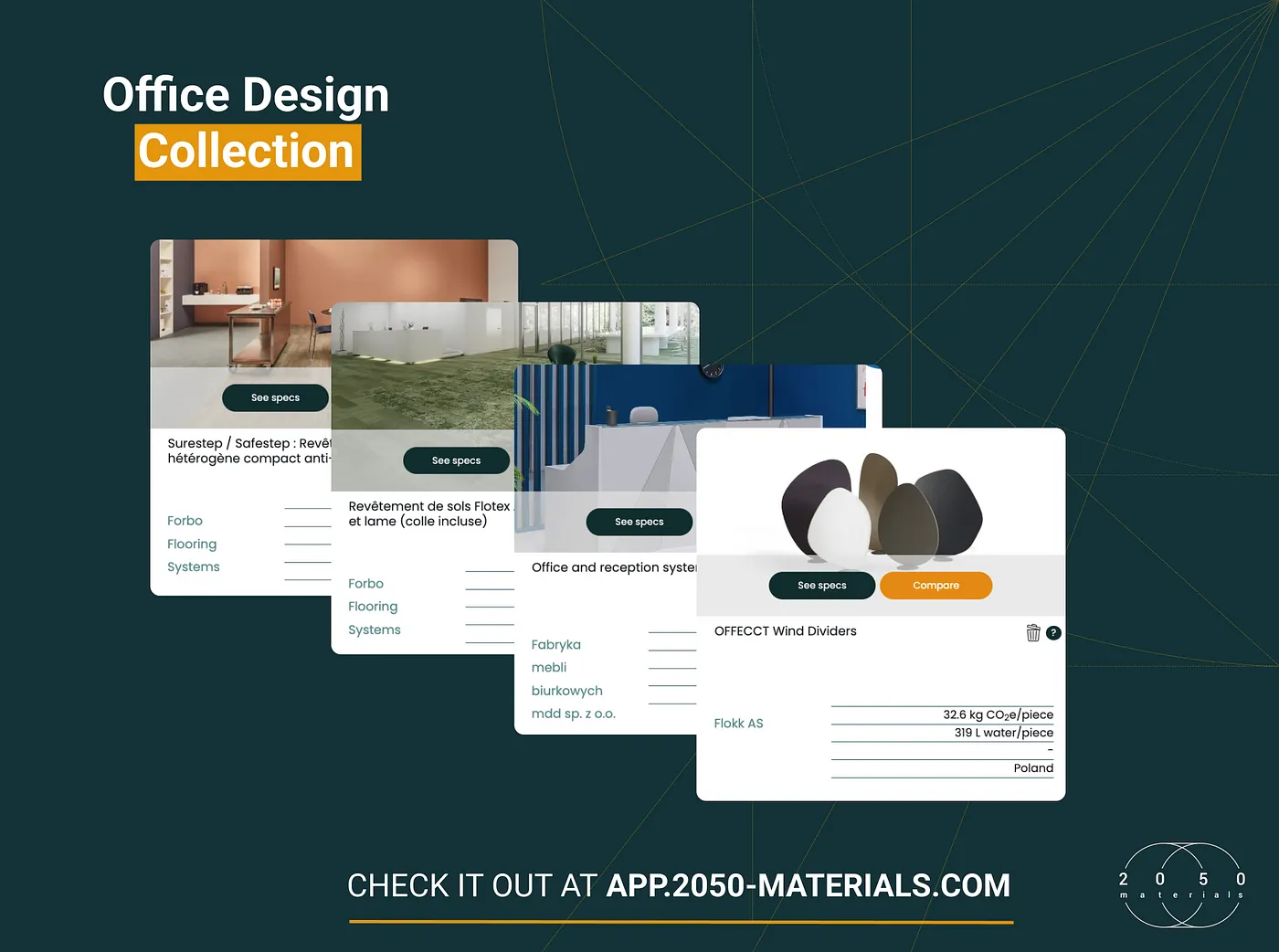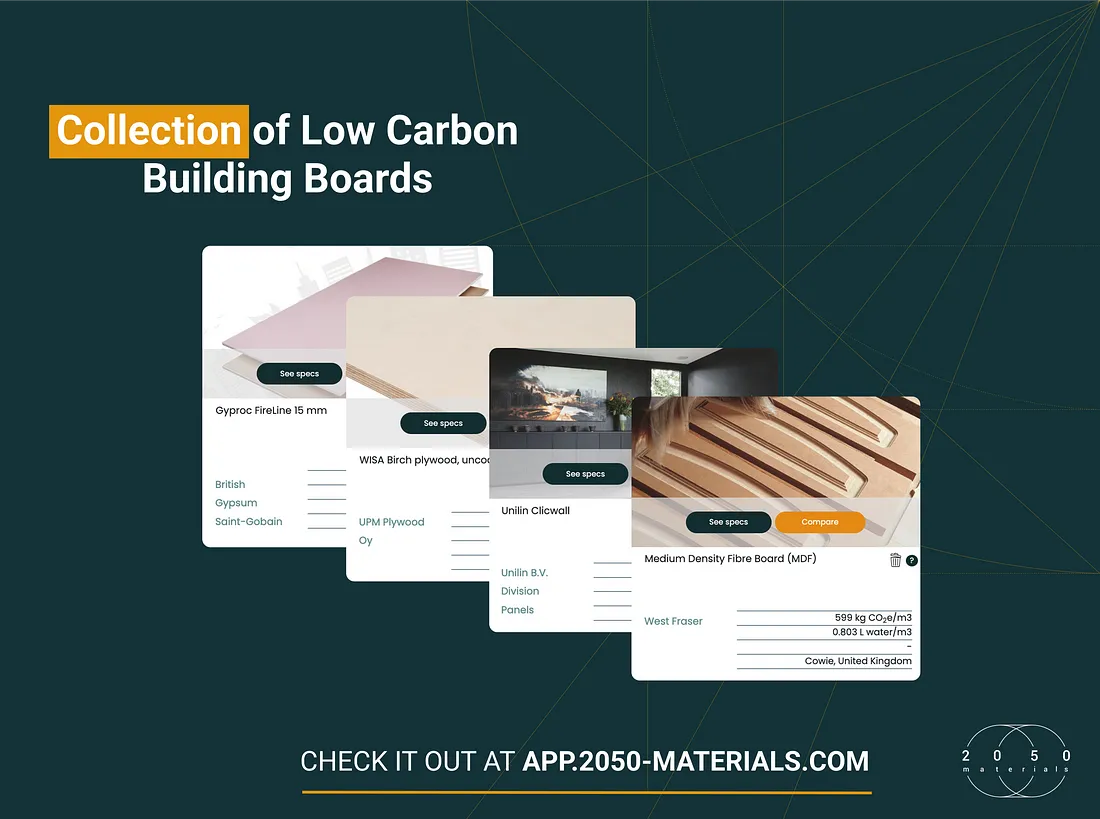Quantity Surveyor: The key player for effective carbon budget management

The construction industry is responsible for 39% of global carbon emissions, of which 11% relate to embodied carbon from construction materials and construction, World Green Building Council
To guarantee the best possible balance between cost and sustainability performance, all new construction and significant renovations need to have an embedded carbon budget included into the project’s construction cost budget from the outset.
The role of quantity surveyors (QS) is evolving rapidly to encompass the management of carbon budgets on construction projects. At the same time, it enables QS firms to submit more competitive bids, ensure positive impact beyond cost optimisation and tap into new revenue streams, increasing their fees as much as +0.5% of the total construction cost.
Consequently, quantity surveyors are in the greatest position to track and estimate the construction and carbon budget throughout all design stages. Quite often, they take on Project Lead or Contract Administration roles, meaning they have the power to dictate specific tender qualifications including carbon budgets, mandating compliance from designers and contractors at the outset of the project and through all life-cycle stages.
 To have effective control of carbon reduction, measurement is imperative.
AIQS director, Simon Squire
To have effective control of carbon reduction, measurement is imperative.
AIQS director, Simon Squire
With their expertise in quantifying and costing construction works, as well as their ability to analyse data and coordinate stakeholders, quantity surveyors are uniquely positioned to play a pivotal role in addressing the carbon footprint of the built environment more effectively than any other stakeholder.
Why is that? Below are the 5 key reasons:
-
Expertise in quantification and costing:
Quantity surveyors are experts in cost management and have an in-depth technical understanding of construction processes. As a result, they have a detailed knowledge of the materials and procedures involved. This expertise provides a solid foundation for managing carbon budgets. By including embodied carbon data of construction materials/products into their estimating calculations, they can accurately assess and track the cost implications in line with the carbon footprint of different building elements or design configurations at all project stages.
 To take this a step further, this can be done even more efficiently by importing carbon factors for different materials directly in cost estimating software libraries. Check how 2050 Materials can help this process here.
To take this a step further, this can be done even more efficiently by importing carbon factors for different materials directly in cost estimating software libraries. Check how 2050 Materials can help this process here.
-
Data analysis and reporting:
Quantity surveyors possess strong analytical skills, which are essential for managing carbon budgets. They specialise in collecting, analysing, and interpreting data, enabling them to track and measure the project’s carbon footprint throughout all lifecycle stages. By identifying areas of concern and proposing strategies for improvement, quantity surveyors can help optimise carbon performance on different design options without exceeding the project budget. Their ability to generate detailed reports and communicate findings to stakeholders ensures transparency and accountability in carbon management throughout the project, from inception to completion.
-
Cost-benefit analysis
Quantifying the financial implications of different options is a fundamental aspect of a quantity surveyor’s role. When it comes to carbon management, however, they can conduct cost-benefit analyses to assess the financial viability of sustainable design solutions in the design and procurement phases. By quantifying potential savings and return on investment, they can help project stakeholders justify the adoption of carbon reduction measures, ensuring that sustainable decisions align with the project’s budget and objectives.
-
Collaboration and coordination:
Quantity surveyors excel in collaborating with various project stakeholders, making them instrumental in managing both consultants and contractors. They quite often coordinate tenders and construction contracts, meaning they can facilitate coordination between the client and consultants such as architects, engineers, contractors, and suppliers. This aids in integrating carbon considerations into the design and procurement processes, contract negotiations, and project management. By fostering collaboration, quantity surveyors ensure that all parties are aligned with the carbon reduction goals, enhancing the implementation of and adherence to these goals.
-
Whole life carbon costing:
While quantity surveyors primarily focus on providing cost budgets, they can apply their skills to whole life carbon costing as well. By incorporating carbon factors into the quantities of materials and works, they can estimate the carbon emissions associated with each project phase, from design to construction to completion. This holistic approach allows for a comprehensive assessment of the project’s carbon impact over its entire lifecycle, while ensuring a “futureproof” solution for the clients’ assets directly impacting their ESG performance.
Regulations are coming
On top of the above, in this rapidly-evolving regulatory space, adherence to environmental regulations and standards related to carbon emissions is critical. Quantity surveyors possess the knowledge and expertise to navigate through these requirements, ensuring compliance. Their familiarity with legal matters and relevant regulations, certifications, and industry best practices minimises legal and reputational risks associated with carbon management.
 For us, quantity surveyors are essential partners in the pursuit of a more sustainable future in the built environment. They do the quantification leg-work, why not expand these efforts to positive impact beyond just cost?
For us, quantity surveyors are essential partners in the pursuit of a more sustainable future in the built environment. They do the quantification leg-work, why not expand these efforts to positive impact beyond just cost?
2050 Materials API — How can we help?
2050 Materials offers a free-to-use platform including the largest database of digitised and structured EPD data.

One of the biggest challenges facing the construction industry is the lack of digitised, structured and trustworthy product sustainability data.
In the background, however, we also feed our data into other solutions in the industry through our easy-to-use API. The data is available both directly through our API service or in CSV/excel format.
2050 Materials’ API provides access to product-specific and generic material/system data, broken down into various sustainability factors such as carbon emissions, circularity, and health impacts. The database is classified as per the NRM (RICS New Rules of Measurement) and other industry-standard classification systems.
If you are a quantity surveyor that gets the urgency and impact potential you can provide – We must talk.
Related articles

Climate-Resilient Materials for the Built Environment: A Data-Centred Prime
As climate volatility intensifies, resilience metrics are fast becoming as critical as carbon data in material selection. This article outlines why adaptation is now a design imperative, how materials can be evaluated through a systems lens, and what KPIs project teams should demand. From self-healing concrete to fire-rated façades, we present a structured taxonomy of resilient materials, explain how to embed this intelligence into digital design workflows, and propose next steps for specification, benchmarking, and procurement.
Read more
The Most Interesting Low Carbon Products in Office Design
In this article and collection, we highlight 11 outstanding products that contribute to a lower carbon footprint in office design.
Read more
Top Low Carbon Building Boards: Performance, Benefits, and Use Cases
The building boards highlighted in this article and collection showcase low-carbon innovation in modern construction.
Read more